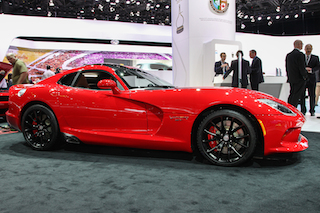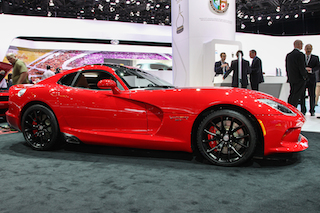

Insure.com’s recently released 2016 ranking of the least and most expensive vehicles to insure compares auto insurance rates in every state for more than 2,300 models from six major insurance companies.
This year, the top 10 “least expensive” list has some repeat winners, a new No. 1, and a surprising No. 10 while the least-expensive vehicle on the “most expensive” list is also the costliest to insure.
Least expensive to insure
Honda takes over the top two spots with the family friendly Odyssey LX minivan jumping four spots from last year to claim No. 1. The popular CR-V LX climbed one spot to No. 2.
It’s the Odyssey’s first time in the top spot, though it has been runner up twice, once in 2010 and again 2014. And it has always made Insure.com’s top 10 cheapest vehicles to insure. This isn’t the first minivan to make it to the top. The first was the Chrysler Town & Country LX in 2011 and next the Toyota Sienna LE in 2012.
“It’s no surprise that a family vehicle such as a minivan has taken over the top spot,” says Penny Gusner, consumer analyst for Insure.com. “The Odyssey has a five-star crash rating from the National Highway Traffic Safety Administration and is relatively inexpensive to repair, and the driver carting around children tends to be more cautious than the person driving a muscle car.”
Of the 33 manufacturer brands in the study, Jeep had the highest number of vehicles making the top 10 with the Sport varieties of the Patriot, Wrangler and Compass filling the fourth, fifth and sixth spots, respectively, while the popular Cherokee Sport made the ninth spot. This marks the third year in a row in which Jeep has been the dominating brand (tied with Honda in 2014).
“The Jeep Wrangler is arguably the best off-road vehicle you can buy for the money, and it’s being used in more generic, normal ways than ever before, perhaps that’s lowering the rate,” says Scott Oldham, editor in chief of car-buying site Edmunds.com. “It’s an urban assault vehicle – it’s fun and cool. And now, it’s a commuter vehicle. It might even be taking the kids to school and back.”
Perhaps, the biggest surprise this year is the addition of a truck in the top 10. The Nissan Frontier S King cab is the first truck to make the least expensive list.
Oldham suggests two reasons for the Frontier’s placement on the list:
- The Frontier hasn’t been redesigned in a long time.
- Because it hasn’t had any changes for longer than a normal vehicle cycle, typically 4-5 years, the parts have been mass-produced at low cost and made easily accessible. This drives down production and repair costs. Nissan hasn’t had to reinvest in the Frontier, and the long life cycle has kept the cost down, he says.
Least Expensive/Average Annual Premium
1. Honda Odyssey LX – $1,113
2. Honda CR-V LX – $1,170
3. Dodge Grand Caravan AVP 2WD – $1,174
4. Jeep Patriot Sport 2WD – $1,180
5. Jeep Wrangler Sport 4WD – $1,181
6. Jeep Compass Sport 2WD – $1,190
7. Ford Escape S 2WD – $1,194
8. Buick Encore Sport Tour 2WD – $1,200
9. Jeep Cherokee Sport 2WD – $1,203
10. Nissan Frontier S King Cab – $1,204
A new kind of top 10
No longer is the top 10 list dominated by compact cars. The wide variety of vehicles in the top 10 means there’s a low-cost insurance option for consumers’ varying needs. Cars, trucks and SUVs are no longer viewed as single-purpose vehicles. For instance, work trucks have extended cabs that fit car seats, minivans have folding rear benches to make room for camping gear or furniture, and technology like wifi easily turns vehicles into mobile offices.
“This is a utility-heavy list,” Oldham says. “SUVs, along with small SUVs, have really exploded in popularity as a segment. Many types of people have gravitated toward them. Insurance companies used to apply to these vehicles how they were used, but now they are seeing them used in many ways – as basic transportation, commuter vehicles, and family vehicles.”
“SUVs have improved their tendency to rollover, which was a big problem probably 10 years ago,” says Loretta L. Worters, Vice President of Communications at the Insurance Information Institute, “Cars are far safer today than they were years ago, which has reduced the number of fatalities.”
Location greatly affects premium
Although the rankings remain stable, the car insurance amounts vary greatly by state. The average annual policy in the country for the Honda Odyssey costs an average of $1,113; it would cost the same driver $651 in Maine and a whopping $2,387 in Michigan.
But why does where the insured lives factor into auto insurance pricing? When determining rates, insurers use metrics, such as population density, crime rate, average weather, frequency of claims, and civil services, including road maintenance and emergency response times.
“Some make and model cars have a greater likelihood of being stolen than others – typically luxury cars and sports cars,” says Worters. “A turbocharged engine, for example, is often more powerful, and people are more likely to speed with them. Not to mention the cost to replace turbochargers – which is quite expensive. Convertibles are also typically more expensive to insure because they are easier to steal.”
Most expensive vehicles to insure
The top 10 most expensive vehicles to insure are about what you’d expect: luxury, style, and horsepower. What is surprising, however, is that the No. 1 most expensive to insure is not the most expensive car on the list. Dodge’s iconic Viper takes the No. 1 spot this year, but it is the “cheapest” car to buy in the top 10 expensive vehicles to insure list with a manufacturer suggested retail price of $97,995.
The annual insurance premium represents 4.1% of the Viper’s purchase price, whereas the No. 2 vehicle on the list, Mercedes’ SL65 AMG, is the most expensive vehicle to purchase with an MSRP of $217,550 and the average annual premium represents 1.7%.
One reason for the discrepancy could be the intent of the driver. “The Viper is a car you buy because you love to drive fast,” says Gusner. “The SL65 likely skews toward those seeking luxury – not speed. That’s reflected in the rates.”
The Nissan GT-R Nismo has held the No. 1 spot for the past two years, but it fell substantially in the ranking this year.

Most Expensive/Average Annual Premium
1. Dodge GT Viper – $4,048
2. Mercedes SL65 AMG – $3,797
3. Mercedes S600 BI-T – $3,539
4. Mercedes S63 AMG 4Matic – $3,513
5. Porsche Panamera S Executive – $3,484
6. Nissan GT-R Nismo – $3,476
7. BMW M6 Gran Coupe – $3,309
8. LandRover Range Rover SV Autobiography Black LWB – $3,245
9. Audi RS7 Quattro Prestige – $3,229
10. Porsche 911 Carrera GT3 RS – $3,212
How do insurers set rates?
A large number of factors play a role in determining auto insurance rates.
“You can’t assume that just because a car is expensive that it’s equally expensive to insure,” says Gusner. “Insurance companies base rates on multiple factors, such as cost of repair, safety ratings and the number of claims on a vehicle model. And that’s before taking into account [the insured’s] driving record. So you really can’t guess where it’s going to fall based on purchase price. You have to run the numbers.”
And just because the insured is likely to be relatively safe in a crash doesn’t mean automatically lower rates, since the vehicle might cause substantial damage to another automobile.
“Insurers look at past claims histories, such as how much damage results in a typical crash for that model, the extent of injuries and fatalities – not just the occupants in the car, but also other parties,” explains Worters. “For example, SUVs are heavier and ride higher than cars, so while that’s good for the passengers in the SUV, [it’s] not good if you hit someone in a car.”
Americans bought about 17.5 million automobiles in 2015, and some forecasters – including TrueCar Inc. – predict 2016 sales to eclipse 18 million. Americans are keeping their cars longer than ever before – averaging just over 11 years.
Methodology
Insure.com commissioned Quadrant Information Services to calculate average auto insurance rates for 2016 models. Averages were calculated using data from six large carriers (Allstate, Farmers, GEICO, Nationwide, Progressive and State Farm) in 10 ZIP codes per state. Not all models were available, especially exotic cars. More than 2,300 models are included in the 2016 study.
Least expensive rankings were based on the best-performing trim line of each model. Most expensive rankings were determined by the worst-performing trim line of each model.
Averages are based on full coverage for a single 40-year-old male who commutes 12 miles to work each day, with policy limits of 100/300/50 ($100,000 for injury liability for one person, $300,000 for all injuries and $50,000 for property damage in an accident) and a $500 deductible on collision and comprehensive coverage. This hypothetical driver has a clean record and good credit. The rate includes uninsured motorist coverage.
State averages were calculated by averaging the rates for all 2,306 models surveyed for each state. Average rates are for comparative purposes only. Individual rates depend on personal factors.
- Pacific Life takeover of former Genworth Lynchburg life operation helps stabilize the term market - September 7, 2017
- Insurtech Updates: Launches, expansions, partnerships and more - June 6, 2017
- Industry trade media brands disappearing: A closer look - March 29, 2017
